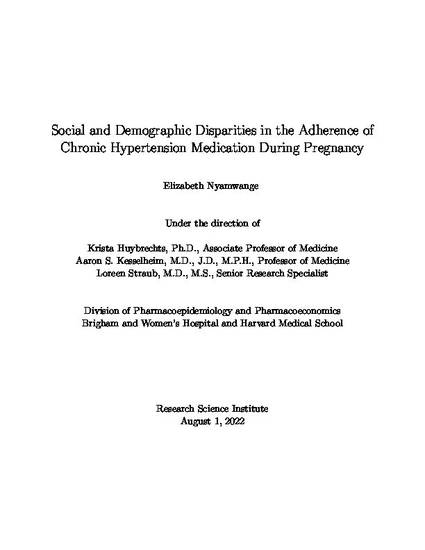
Massachusetts Institute of Technology (MIT) Research Science Institute (RSI)
Occurring in approximately 6-8% of all pregnancies, hypertensive disorders of pregnancy (HDP) are one of the major causes of pregnancy-related maternal and fetal morbidity and mortality worldwide. Although there are many low-cost medications that can adequately treat this condition, patient adherence to these medications can vary widely. The objective of this study was to assess adherence to anti-hypertensive medication by pregnant women and to identify the social and demographic factors associated with incomplete adherence. Using a cohort of 28,008 publicly-insured women who initiated anti-hypertensive treatment within the first 20 weeks of gestation, we assessed dosage within biweekly gestational intervals, created group-based trajectory models, and evaluated the association between the different trajectory groups and associated social and demographic characteristics. We found that age, race, geographic region, and adequacy of care were directly correlated with adherence, which can help focus interventions on the highest-risk patients to reduce the risk of bad outcomes from uncontrolled hypertension during pregnancy.
Available at: http://works.bepress.com/elizabeth-nyamwange/2/
